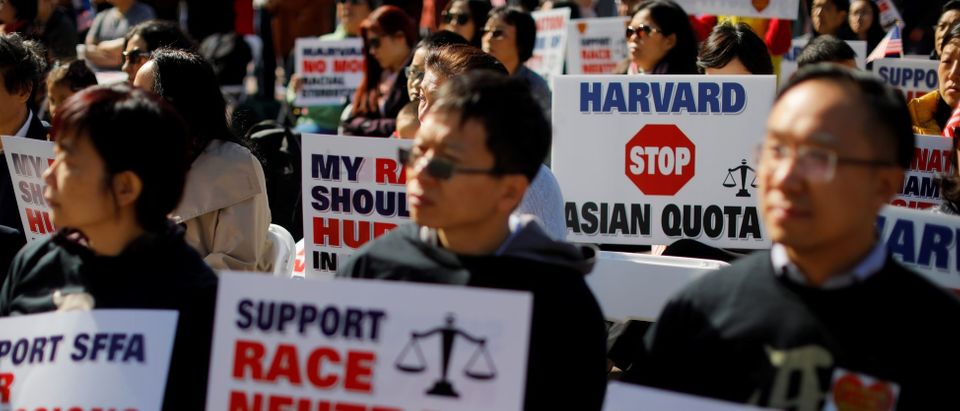It’s morning again in America: Affirmative action is gone. Good riddance.
In Grutter v. Bollinger (2003), Justice Sandra Day O’Connor, who wrote the majority opinion, claimed the “Court expects that 25 years from now, the use of racial preferences will no longer be necessary to further the interest approved today.” That would bring us to 2028, just five years from now. So the clock was ticking on affirmative action.
I have long opposed race-based admissions to colleges and universities. Back in 2007, I argued that affirmative action only lowered the bar at U.S. academic institutions, criticizing the University of California system for bringing down its minimum high school GPA threshold and removing the requirement of two SAT subject tests. Catering to some black and Hispanic students, California schools were essentially erasing the time-tested virtues of competition and meritocracy, at the expense of many white and Asian students.
Over the last two decades, the problem has only gotten worse. Schools like Harvard University and the University of North Carolina—whose “race-conscious” affirmative action programs were struck down this week—have openly discriminated against certain students to treat others as victims. In lamenting the Supreme Court’s decision, academic elites once again admitted as much, treating members of some racial groups as more important than others—because of “systemic racism” that doesn’t actually exist.
The affirmative action debate is really quite simple: You’re either for competition, or you’re not. You either support a merit-based education system—which rewards the best students—or you don’t. You either oppose reverse racism, or you believe 21st-century racism has a place in college admissions.
Last I checked, discrimination to fix historical discrimination is still discrimination. In Harvard’s case, a black applicant in the fourth-lowest academic decile had a higher chance of college acceptance than an Asian student in the top decile.
The Asian applicant’s chance of acceptance? Less than one percent.
And that is supposedly progressive? That is justice? How fair is an education system that rewards a wealthy black student at the expense of a poor Asian or white one, just because of their skin color? Affirmative action clearly punishes students of the “wrong” race who have the temerity to work hard, earn good grades, and perform well on standardized tests.
In its divisiveness, affirmative action undermines merit in a way that does far more harm than good. And most people understand that: Joe Biden may still complain about “systemic racism,” but 70 percent of Americans believe that colleges and universities should not be allowed to consider race in the admissions process. Even most Democrats don’t want skin color to be part of that equation.
When affirmative action has been put to voters in states like California and Michigan, it has been voted down—resoundingly so. And its ban has not been some death knell of academic achievement: To the contrary, when California banned the use of race-based college admissions, four-year graduation rates for black students actually went up because they went to schools that matched their respective skill levels.
As for students who have difficulty getting into more competitive schools, a more viable policy fix than affirmative action is to actually solve the K-12 education problem. Too many of America’s government schools are failing their students, especially blacks and Hispanics who can’t escape the teachers union monopoly in urban areas. The same Left now bemoaning this recent Supreme Court decision also happens to oppose school choice, despite the fact that it offers parents and students with real options to escape government schools, improve test scores, and increase high school graduation rates.
Rather than “fixing” discrimination with more discrimination, Americans should rally around school choice and empower people with opportunities to escape bad schools and find better learning environments for themselves. That would help Americans of all colors and creeds.
But, until school choice becomes a national reality, let’s celebrate the Supreme Court’s affirmative action decision. Americans are closer to achieving Martin Luther King Jr.’s vision of a colorblind society today than we were yesterday. The Left’s loss is a win for everyone else.
Larry Elder is a Republican candidate for president of the United States in 2024. He is the author of “As Goes California: My Mission to Rescue the Golden State and Save the Nation.”
The views and opinions expressed in this commentary are those of the author and do not reflect the official position of the Daily Caller.


